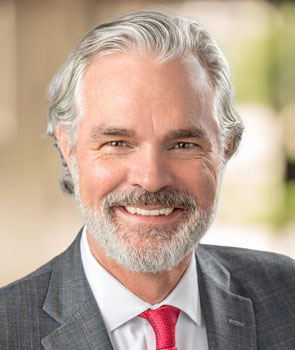The plaintiff, an ironworker, experienced a work-related injury that resulted in a herniated disc in his spine. An initial trial concluded that his employer was exempt from continued medical expenses and disability benefits after termination of his employment. Further analysis revealed that he had failed to reach maximum medical improvement in his condition at the time of termination and would require further treatment. The decision was remanded, requiring a reconsideration of vocational rehabilitation and disability benefits.
Benson v. Casey Industrial and Argonaut Insurance
12 Neb.App. 396 (Neb.App. 2004)
674 N.W.2d 798
Melvin BENSON, appellant, v. CASEY INDUSTRIAL and Argonaut Insurance, appellees.
No. A-03-711.
Court of Appeals of Nebraska
February 17, 2004.
[674 N.W.2d 799]
Syllabus by the Court
- Workers’ Compensation: Appeal and Error. An appellate court may modify, reverse, or set aside a Workers’ Compensation Court decision only when (1) the compensation court acted without or in excess of its powers; (2) the judgment, order, or award was procured by fraud; (3) there is not sufficient competent evidence in the record to warrant the making of the order, judgment, or award; or (4) the findings of fact by the compensation court do not support the order or award.
- Workers’ Compensation: Appeal and Error. In determining whether to affirm, modify, reverse, or set aside a judgment of the Workers’ Compensation Court review panel, a higher appellate court reviews the findings of fact of the single judge who conducted the original hearing; the findings of fact of the single judge will not be disturbed on appeal unless clearly wrong.
- Workers’ Compensation: Appeal and Error. An appellate court is obligated in workers’ compensation cases to make its own determinations as to questions of law.
- Workers’ Compensation: Judgments: Appeal and Error. The question of whether an injured employee has reached maximum medical improvement is one for the Workers’ Compensation Court as trier of fact, and its judgment may not be set aside on appeal where there is evidence sufficient to support it.
Jeffrey F. Putnam, of Inserra & Kelley, for appellant.
Ronald E. Frank, of Sodoro, Daly & Sodoro, Omaha, for appellees.
IRWIN, Chief Judge, and HANNON and CARLSON, Judges.
CARLSON, Judge.
Introduction
Melvin Benson appeals from an order of a review panel of the Nebraska Workers’ Compensation Court affirming the trial court’s order regarding Benson’s petition for damages he allegedly sustained while working for Casey Industrial (Casey) on January 15, 2001. The trial court found that Benson had reached maximum medical improvement (MMI), that Benson was no longer entitled to temporary benefits, and that Benson failed to suffer a permanent disability and loss of earning capacity. For the reasons set forth below, we reverse, and remand with directions.
Background
Benson began working for Casey on May 4, 2000, as a journeyman ironworker.
[674 N.W.2d 800] On January 15, 2001, Benson injured himself while working for Casey while attempting to drive bolt pins through holes in a steel column. Benson fell backward while swinging an “eight-pound beater” hammer and felt pain midway between his shoulders. Benson immediately reported his injury to his foreman and was told that it was probably just a muscle strain. Casey did place Benson on light duty, but was reluctant to send Benson to a doctor.
After the pain had continued, Benson saw a doctor on January 17, 2001, and was prescribed a muscle relaxant and a pain reliever. Subsequently, Benson continued on light duty at Casey, which duty consisted at first of mopping and cleaning and later of preparing bolts for other ironworkers to use. On approximately January 20, Casey laid Benson off. Benson then returned to his home in Arkansas. The record shows that Benson resided in Arkansas and traveled fairly extensively in his job with Casey.
Casey then offered Benson a position in North Carolina, where Benson returned to light duty. Benson then saw a doctor who prescribed physical therapy in addition to continuing Benson’s prescription medications. On June 6, 2001, that doctor referred Benson to Dr. Alfred L. Rhyne. Rhyne saw Benson for the first time on June 13, at which time Benson reported continued pain between his shoulder blades. An MRI of Benson’s thoracic spine showed a focal midline herniation at T4-5. Rhyne continued Benson’s prescription medications and restricted Benson’s lifting to a maximum of 15 pounds, while allowing Benson to work 4 hours per day for the following 2 weeks and then 6 hours per day thereafter.
On July 13, 2001, when Benson had returned to Rhyne and reported continued pain, Rhyne recommended physical therapy and restricted Benson to working 8 hours per day with maximum lifting of 15 pounds. In a subsequent report, Rhyne opined that Benson had not reached MMI as of July 13, but that Benson would reach MMI within the next 3 to 6 months. Rhyne conditioned Benson’s attainment of MMI on Benson’s completion of physical therapy.
The record shows that Benson continued with physical therapy until August 2, 2001, when Casey fired Benson for being tardy to work. Specifically, although there is evidence in the record that Benson was not improving and that it was “probabl[e]” that Benson’s physical therapist would discharge Benson back to Rhyne, as of August 2, when Casey fired Benson, Benson had remained in physical therapy per Rhyne’s plan of care. The record shows that Benson’s future physical therapy appointments were canceled only after Casey fired Benson and that Casey did not pay any more money, through its insurance carrier, Argonaut Insurance, or otherwise, to Benson after that time.
Following the termination of his employment, Benson moved back to Arkansas. Two weeks later, Benson went to the Mena Medical Center emergency room for his pain. Benson struggled to continue medical treatment because of Casey’s denial of further benefits. Benson was refused treatment by certain Arkansas physicians and had to pay some medical bills himself. The record shows that Benson also had difficulty obtaining prescriptions.
Benson did see a doctor at a clinic on November 19, 2001, who prescribed medication and later recommended that Benson attend a pain clinic. Benson also received physical therapy at the Mena Medical Center when Medicaid paid the bill. Physical [674 N.W.2d 801] therapy failed to alleviate Benson’s symptoms.
After the termination of his employment, Benson was unable to find a job despite applying for approximately 22 to 24 positions. Benson has returned to school to become more employable.
Trial was held on August 14, 2002. The parties stipulated that Benson had been employed by Casey at the time of the accident at issue and that Casey had paid Benson all temporary total and temporary partial disability benefits owed him from the date of the accident, January 15, 2001, until August 1 of the same year. The trial court determined that Benson had reached MMI no later than August 1 and denied Benson temporary total disability benefits after that date. The trial court also found that Benson had failed to present evidence that he was permanently injured. The trial court awarded Benson $500 in attorney fees, holding that no reasonable controversy existed as to whether Benson required medical care due to his employment-related injuries after July 31, 2001. Benson appealed, and the review panel affirmed the decision of the trial court except as to the trial court’s award of attorney fees to Benson. Benson now appeals to this court.
Assignments Of Error
On appeal, Benson argues that the trial court erred in making the following findings: (1) Benson reached MMI, (2) Benson is not entitled to temporary total disability benefits, (3) Benson is not entitled to permanent partial disability benefits, (4) Benson is not entitled to a loss of earning capacity, and (5) Benson is not entitled to vocational rehabilitation benefits.
Standard Of Review
An appellate court may modify, reverse, or set aside a Workers’ Compensation Court decision only when (1) the compensation court acted without or in excess of its powers; (2) the judgment, order, or award was procured by fraud; (3) there is not sufficient competent evidence in the record to warrant the making of the order, judgment, or award; or (4) the findings of fact by the compensation court do not support the order or award. Misek v. CNG Financial, 265 Neb. 837, 660 N.W.2d 495 (2003).
In determining whether to affirm, modify, reverse, or set aside a judgment of the Workers’ Compensation Court review panel, a higher appellate court reviews the findings of fact of the single judge who conducted the original hearing; the findings of fact of the single judge will not be disturbed on appeal unless clearly wrong. Schwan’s Sales Enters. v. Hitz, 263 Neb. 327, 640 N.W.2d 15 (2002). An appellate court is obligated in workers’ compensation cases to make its own determinations as to questions of law. Larsen v. D B Feedyards, 264 Neb. 483, 648 N.W.2d 306 (2002).
Analysis
On appeal, Benson argues that the trial court erred in finding that Benson had reached MMI. The question of whether an injured employee has reached MMI is one for the Workers’ Compensation Court as trier of fact, and its judgment may not be set aside on appeal where there is evidence sufficient to support it. Bindrum v. Foote & Davies, 235 Neb. 903, 457 N.W.2d 828 (1990).
The only evidence in the record regarding whether Benson has reached MMI was the opinion of Rhyne, who in a July 23, 2002, report stated that Benson would have reached MMI within 3 to 6 [674 N.W.2d 802] months of the date he last saw Benson, or July 13, 2001. Rhyne cited Benson’s need for physical therapy as an impediment to finding that Benson had reached MMI. In its order, the trial court found that Benson had reached MMI no later than August 1, 2001, after finding that Benson “was discharged from physical therapy on or about July 31, 2001.” There is no evidence in the record to show that Benson had completed therapy or had been discharged from therapy as of that July 31.
Instead, the record shows that Benson was still in physical therapy per Rhyne’s plan of care as of August 2, 2001, the date when Casey fired Benson. The record shows that Benson’s future physical therapy appointments were canceled only after Casey fired Benson and that Casey did not pay any more money to Benson after that time. Clearly, Casey’s obligation to pay Benson further benefits did not cease upon Casey’s firing of Benson.
Given the evidence on this record, the trial court was clearly wrong in finding that Benson had reached MMI no later than August 1, 2001. Thus, we reverse the trial court’s finding in this regard and remand the cause to the review panel, which is to remand the cause to the trial court for a finding consistent with this opinion. Similarly, because the trial court based all its further findings on this finding of fact, we direct the court to vacate its resultant findings regarding Benson’s entitlement to temporary total disability benefits, permanent partial disability benefits, a loss of earning capacity, and vocational rehabilitation benefits and to reopen the question of Benson’s entitlement to attorney fees in regard to the question of a reasonable controversy. Given our finding that Benson has not reached MMI, we also direct the court to make new findings regarding Benson’s entitlement to temporary total disability benefits.
Conclusion
After reviewing the record, we find that the trial court was clearly wrong in finding that Benson reached MMI no later than August 1, 2001. Thus, we reverse that finding by the trial court, and we remand the cause to the review panel for further remand to the trial court with directions to vacate its resultant findings regarding Benson’s entitlement to temporary total disability benefits, permanent partial disability benefits, a loss of earning capacity, and vocational rehabilitation benefits. We also direct the trial court, on remand from the review panel, to reconsider Benson’s entitlement to attorney fees, if any, as they relate to the question of a reasonable controversy and to determine whether Benson is entitled to temporary total disability or temporary partial disability benefits because of the fact that the evidence fails to show that Benson has reached MMI.
REVERSED AND REMANDED WITH DIRECTIONS.



